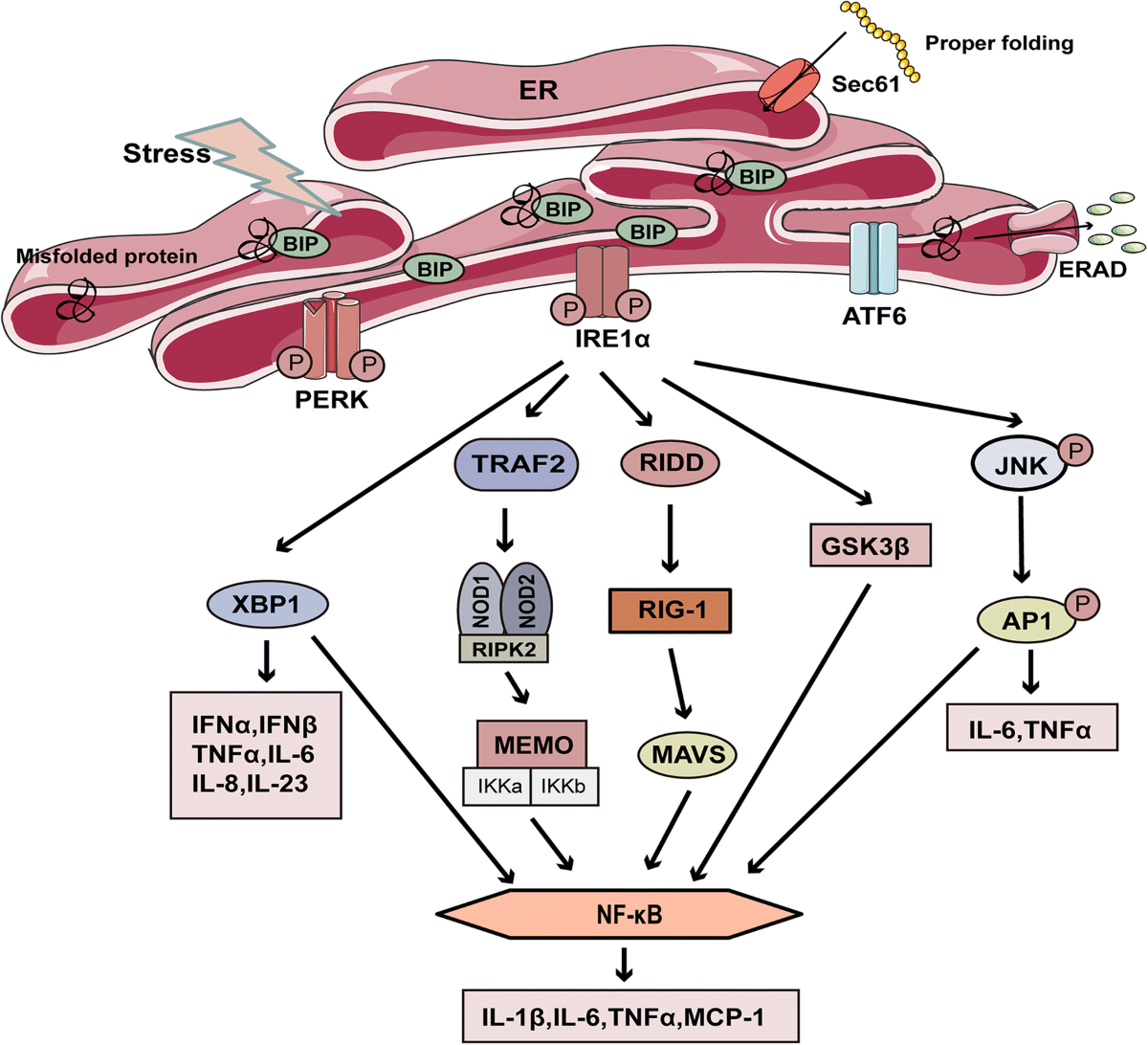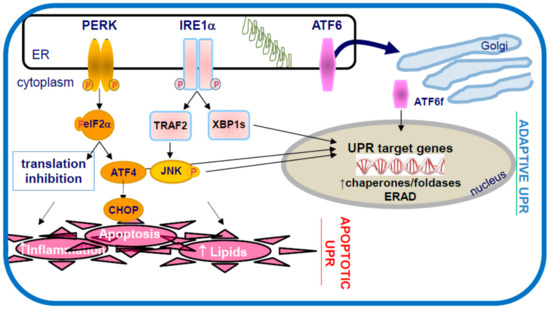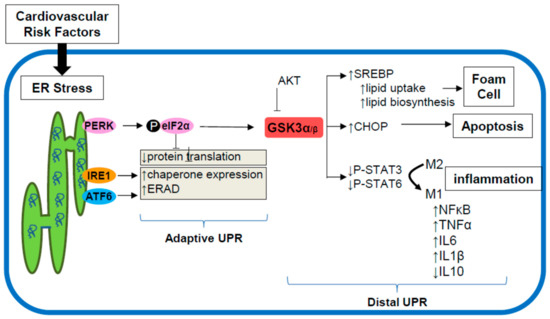GSK3と小胞体との関係について
最近の研究結果によれば、小胞体ストレスは、グリコーゲン合成酵素キナーゼ-3α (GSK-3α) を介したERストレスシグナリングが、マクロファージの脂質蓄積、炎症性サイトカインの産生、およびM1マクロファージの極性化に重要な役割を果たすことを示しています1。この関連は、糖尿病や動脈硬化などの疾患の発症に影響を与えます
The Role of Endoplasmic Reticulum Stress-Glycogen Synthase Kinase-3 Signaling in Atherogenesis



GSK3α/β are involved in several metabolic pathways, and they have been linked to a number of diseases including Alzheimer’s disease , diabetes , and bipolar mood disorder . The kinase domains of GSK3α/β are 98% homologous and there is broad overlap in substrate specificity . However, GSK3α and β are not functionally equivalent, and it is now clear that the α and β forms of GSK3 have distinct functions. The most striking difference is illustrated by the fact that mice lacking GSK3α are viable, fertile and have no overt phenotype . In contrast, GSK3β-deficient mice die of liver failure and heart defects during mid-gestation (E13.5-16.5)
GSK3βの機能不全は肝障害、心不全とかかわりが深い.

ER stress-inducing agents can promote GSK3α/β activity, however genetic deficiency or pharmacological inhibition of GSK3α/β does not appear to alter the proximal adaptive UPR to ER stress [48,59,76]. These observations suggest that GSK3α/β lies downstream of the proximal UPR. However, GSK3α/β does contribute to ER stress-induced PERK signaling to upregulate the transcription factors ATF4 and CHOP [76]. Furthermore, pharmacological inhibition of GSK3α/β attenuates the ER stress-induced uptake of free and modified cholesterol, as well as the expression of genes involved in regulating lipid and cholesterol metabolism, such as fatty acid synthase (FAS), SREBP-1c, SREBP-2,3-hydroxy-3-methylglutaryl-coenzyme A (HMG-CoA) reductase, and the LDLR [76]. GSK3α/β can regulate the expression of several pro-inflammatory cytokines including IL-6, IL-1β, and tumor necrosis factor TNF-α through activation of nuclear factor NF-κB [57,71]. Moreover, inhibiting GSK3α/β reduces the expression of pro-inflammatory cytokines and augments anti-inflammatory cytokine production such as IL-10. These findings suggest a role of ER stress-GSK3α/β signaling in cell survival, and the formation of macrophage foam cells, and the production of inflammatory cytokines.





